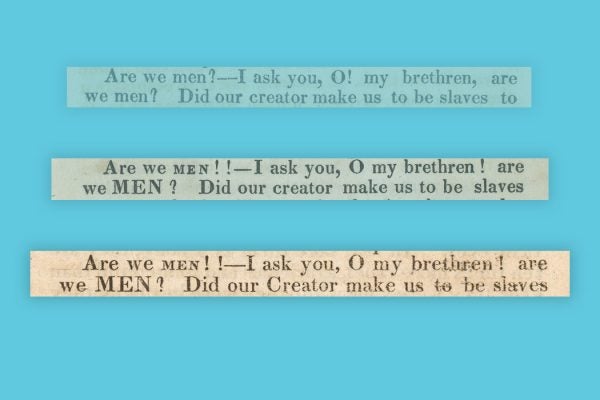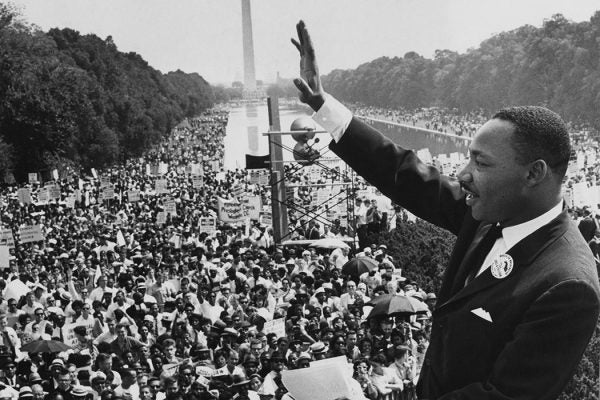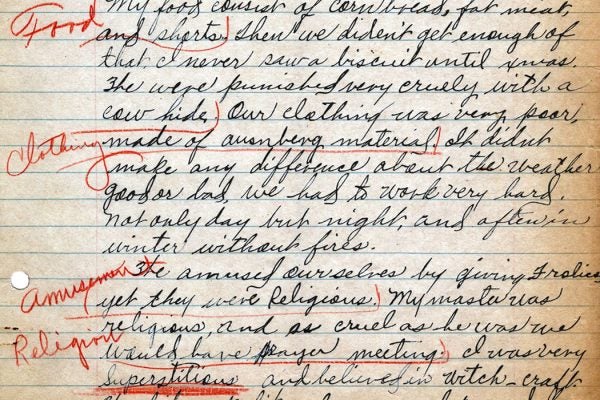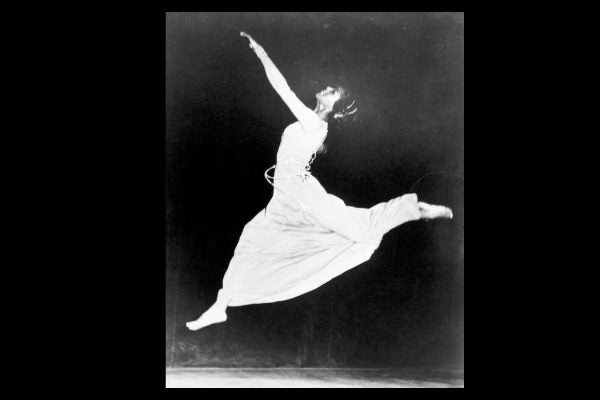The Scholars Charting Black Music’s Timeline: Douglas Henry Daniels & Paul Austerlitz
Daniels and Austerlitz tell the story of jazz, from its origins in the blues, gospel, and funk to its impact on music around the world.
The Voting Rights Act 1965: Annotated
The passing of the Voting Rights Act in August 1965 prohibited the use of Jim Crow laws and discriminatory tests to disenfranchise Black voters.
Comparing Editions of David Walker’s Abolitionist Appeal
Digitization allows researchers to trace editorial and authorial changes in archival content. Both are central to the study of this famous abolitionist pamphlet.
“I Have a Dream”: Annotated
Martin Luther King, Jr.'s iconic speech, annotated with relevant scholarship on the literary, political, and religious roots of his words.
Angela Proctor on the “Opinions Regarding Slavery: Slave Narratives” Collection
We spoke with Angela Proctor, head archivist at Southern University, about the collections of slave narratives compiled by John B. Cade from 1929-1935.
John B. Cade’s Project to Document the Stories of the Formerly Enslaved
A recently digitized slave narrative collection consists of original manuscripts compiled by John Brother Cade and his students at Southern University.
The Emancipation Proclamation: Annotated
Abraham Lincoln proclaimed freedom for enslaved people in America on January 1, 1863. Today, we've annotated the Emancipation Proclamation for readers.
The Declaration of Independence: Annotated
Related links to free scholarly context on JSTOR for the foundational document in American government.
Mexico’s First Liberated City Commemorates Its Founding
The City of Yanga was founded after a group of enslaved Africans, led by Gaspar Yanga, rebelled against colonial rule.
Teaching Black Women’s Self-Care during Jim Crow
Maryrose Reeves Allen founded a wellness program at Howard University in 1925 that emphasized the physical, mental, and spiritual health of Black women.









